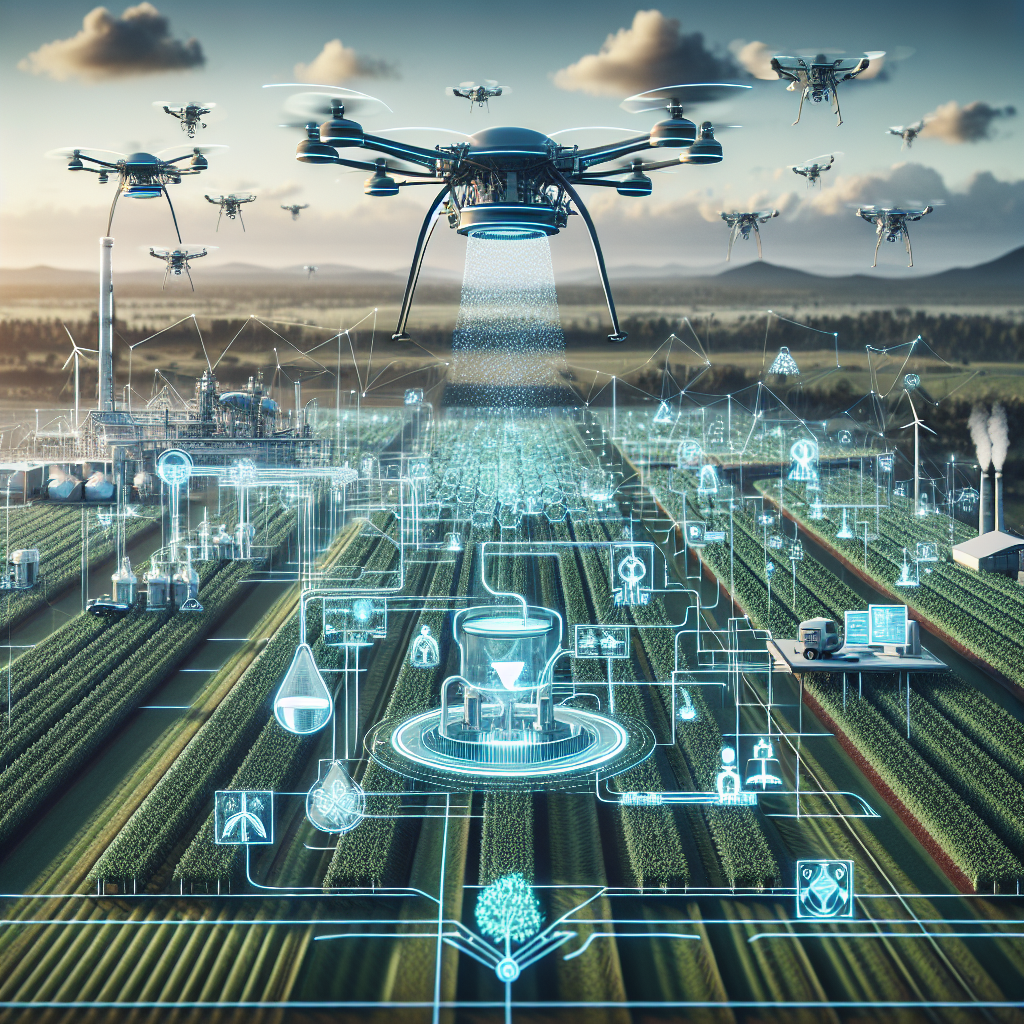Soil fertility management is a critical aspect of agriculture that directly impacts crop productivity and quality. Maintaining optimal soil fertility levels is essential for ensuring sustainable agricultural practices and maximizing yields. Traditionally, farmers have relied on manual methods and chemical fertilizers to manage soil fertility. However, with the advancements in technology, AI-driven solutions are revolutionizing soil fertility management by providing more precise, efficient, and sustainable solutions.
AI-driven solutions for soil fertility management leverage data analytics, machine learning, and predictive modeling to analyze soil conditions, crop requirements, and environmental factors. By integrating data from various sources such as satellite imagery, weather forecasts, soil samples, and historical crop data, AI algorithms can provide real-time insights and recommendations for optimizing soil fertility. These solutions enable farmers to make informed decisions about nutrient management, irrigation scheduling, and crop rotation to improve soil health and productivity.
One of the key benefits of AI-driven solutions for soil fertility management is the ability to tailor recommendations to specific soil conditions and crop requirements. By analyzing large datasets and identifying patterns and trends, AI algorithms can provide personalized recommendations for nutrient applications, irrigation schedules, and crop rotations. This level of precision allows farmers to optimize inputs, reduce waste, and improve crop yields while minimizing environmental impacts.
Another advantage of AI-driven solutions is the ability to predict soil fertility trends and anticipate potential issues before they arise. By analyzing historical data and environmental factors, AI algorithms can forecast soil nutrient levels, pH levels, and moisture content to help farmers proactively address deficiencies and imbalances. This proactive approach can prevent nutrient leaching, soil erosion, and other soil degradation issues, ultimately improving soil health and productivity in the long term.
AI-driven solutions for soil fertility management also offer scalability and accessibility for farmers of all sizes. By leveraging cloud-based platforms and mobile applications, farmers can access real-time data and recommendations from anywhere, anytime. This accessibility allows smallholder farmers and large-scale producers alike to benefit from AI technologies and improve their soil fertility management practices.
In addition to optimizing soil fertility, AI-driven solutions can also contribute to sustainable agriculture practices by reducing the reliance on chemical fertilizers and pesticides. By providing precise recommendations for nutrient applications and pest management, AI algorithms can help farmers minimize the use of synthetic inputs and adopt more environmentally friendly practices. This shift towards sustainable agriculture can improve soil health, reduce environmental impacts, and ensure the long-term viability of farming operations.
Overall, AI-driven solutions for soil fertility management hold great promise for transforming agriculture and ensuring food security in the face of climate change and growing population pressures. By harnessing the power of data and technology, farmers can optimize their soil fertility management practices, improve crop yields, and sustainably manage their land for future generations.
FAQs:
Q: How do AI-driven solutions for soil fertility management work?
A: AI-driven solutions for soil fertility management use data analytics, machine learning, and predictive modeling to analyze soil conditions, crop requirements, and environmental factors. By integrating data from various sources such as satellite imagery, weather forecasts, soil samples, and historical crop data, AI algorithms can provide real-time insights and recommendations for optimizing soil fertility.
Q: What are the benefits of using AI-driven solutions for soil fertility management?
A: AI-driven solutions offer personalized recommendations, predictive insights, scalability, and accessibility for farmers of all sizes. These solutions enable farmers to optimize inputs, reduce waste, and improve crop yields while minimizing environmental impacts. AI-driven solutions also contribute to sustainable agriculture practices by reducing the reliance on chemical fertilizers and pesticides.
Q: How can farmers access AI-driven solutions for soil fertility management?
A: Farmers can access AI-driven solutions for soil fertility management through cloud-based platforms and mobile applications. These platforms provide real-time data and recommendations that farmers can use to make informed decisions about nutrient management, irrigation scheduling, and crop rotation. By leveraging these technologies, farmers can improve their soil fertility management practices and optimize their crop production.
Q: Are AI-driven solutions for soil fertility management suitable for all types of crops?
A: Yes, AI-driven solutions for soil fertility management can be tailored to specific crops and soil conditions. By analyzing large datasets and identifying patterns and trends, AI algorithms can provide personalized recommendations for nutrient applications, irrigation schedules, and crop rotations. This level of precision allows farmers to optimize inputs and improve crop yields for a wide range of crops.

